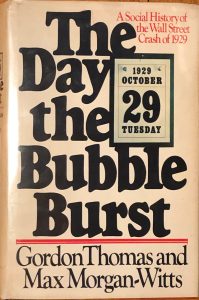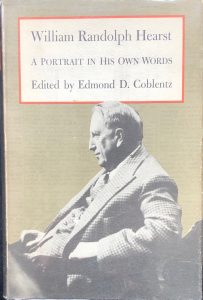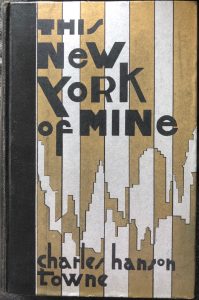A Classic Wall Street Tale – Soon To Be Repeated
October 29 is an important anniversary date that many do not remember because they did not live through it. On that date in 1929 the stock market crashed to an astonishing level.
Major media outlets are praising Aaron Ross Sorkin’s forthcoming book 1929: Inside the Greatest Crash in Wall Street History–and How It Shattered a Nation, (Random House, November 4 2025).
Coincidentally I was just finishing an older book about the same subject. It is among the best books ever written about Wall Street.
 The Day the Bubble Burst: A Social History of the Wall Street Crash of 1929 by Gordon Thomas and Max Morgan-Witts (Doubleday, 1979) is a masterful work of storytelling.
The Day the Bubble Burst: A Social History of the Wall Street Crash of 1929 by Gordon Thomas and Max Morgan-Witts (Doubleday, 1979) is a masterful work of storytelling.
While John Kenneth Galbraith’s 1955 book The Great Crash 1929, remains the seminal work on the economic causes of the crash, Thomas and Morgan-Witts examine the human aspects of the financial calamity which ushered in the Great Depression.
Threading together the lives of movers and shakers of Wall Street and the ordinary citizen, the authors lay out stories that resonate today. Events unfolding before us now, have similarities to the great crash of 1929. Continue reading →
 Hearst, an inveterate collector, loved all animals. He could not stand to see any animal suffer. Mice and even rats were to be caught and released. Continue reading
Hearst, an inveterate collector, loved all animals. He could not stand to see any animal suffer. Mice and even rats were to be caught and released. Continue reading 










